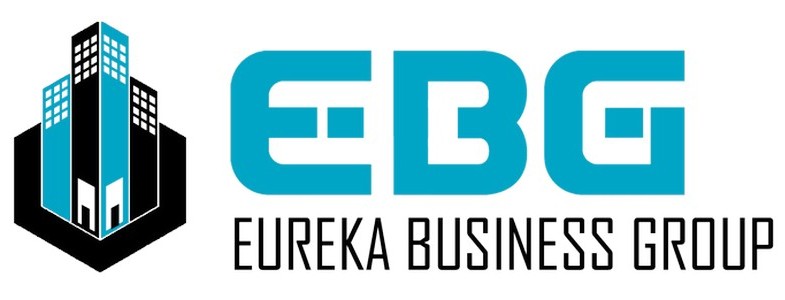- Home
- Retail
- Retail Investors Resources
- Commercial Real Estate Timeline Explained: From Offer to Closing!
Commercial Real Estate Timeline Explained: From Offer to Closing!
Transcript
Hey, everybody, Joseph Gozlan with Eureka Business Group, and it’s Friday. So happy Friday, everybody. And I thought I’m going to take a quick moment and talk to everybody about a timeline for commercial real estate transaction. I realized almost everybody know how a residential transaction timeline look like, but on the commercial side, I just recently worked with a few new investors that it’s the first commercial investment.
And. Explaining the timeline was important. So here’s what we’re going to do that. We’re going to talk about that today. Try to keep it pretty brief. And at the end, you’ll have at least an understanding of how the timeline looks like. The 1st thing you got to do, just like in residential transactions, you got to find a property or whether you’re searching on your own or you’re searching with a commercial real estate agent.
It doesn’t really matter, but you just have to find a property. Once you find the property, you want to Yeah. Buy or you want to make an offer on that’s when you put in together an L. O. Y. And L. O. Y. Is letter of intent. It’s designed to be noncommitting because on the bigger transaction, you have to get attorneys involved and it gets complicated.
So we try not to spend all the money on putting a contract or an offer that’s not going to happen or potentially not going to happen. So what you do is you put a one page or maybe two pages. Some people get over complicated with that. We like to keep ours very simple and just Determine the high level things.
This is what I’m willing to offer as a purchase price. This is how much time I need for a due diligence period, which is the commercial version of option period. How much do I need for closing and financial contingency, which title company I want to use, and maybe like earnest money, things like this.
Very high level, no details. There’s no need to get into the details until we agree on the high level items. If that needs a little bit more negotiation, you might get a counter on the LOI from the sellers. You might go straight to, okay, it doesn’t matter as long as you get to everybody agree on the LOI.
That’s when you kick it up a gear and you move over to, uh, contract negotiation. So the first part, the LOI, usually takes a few days, no more than that, unless it’s really complicated transactions or really big transactions. Normally it’s a day or two and you’re done with that part. The next step is the contract negotiation.
While we have agreed in the LOI phase on the high level items, the commercial contract will have a lot more details. And those get negotiated. The bigger the deal, the more complicated the deal, the longer and more complicated a transaction gets. We tell our client, usually if it’s under 3 million, 4 million transaction, we can use.
A permaculture form from the commercial association of realtors or from any out of, out of those state forms that are available for commercial real estate as well. But if it gets higher than that, we highly recommend that you get your own attorney to work on a custom contract. The bigger transactions require more details, more complexity, and more protection.
Usually the entities that hold those get complicated and so on. Contract negotiation. It’s more about the fine details on the contract. Okay. That could take a few days to a few weeks, maybe even a month. Sometimes depends on the complexity of the deal, but that’s the next step. Once everybody agreed on the contract, then it goes to signatures, signing the contract on both sides kicks off the process.
That’s your day one. You send the money to earnest money to the title company. In commercial transactions, it’s very rare to see that in residential, but in commercial transaction, it’s pretty common for the title company to issue what we call a critical dates letter. Critical dates letter is basically just a one table that has all the milestones that are set in the contract and the dates that are set.
Correlating to the date, the effective date of the contract, the day everybody signed up. So if the contract says you have three business day to submit a, to the earnest money, and today is September 1st and it’s a Monday, then September 1st, 2nd, 3rd, Monday, Tuesday, Wednesday, you have to be with the earnest money 3rd or 4th, depending on when the contract was signed before or after business date and so on.
In order to avoid those mistakes, is it business days or is it calendar days? Is it before the end of the day, after the end of the day, and so on? We handed over to the title company to issue the critical date letter. Obviously, it’s important that you review and you agree with those numbers. But normally they’re professionals.
They know what they’re doing. So your clock start ticking on your due diligence period, the day, the contract is effective, right? The day everybody signed, it doesn’t matter that it took you three days to send the money to the earth, to the earnest money, to the title company. Your clock start ticking the effective date, which is the day everybody signed.
Let’s say you have 30 days of diligence. That’s. Pretty standard in commercial real estate. If it’s smaller, you might be able to get away with 14 or 21 days to diligence. If it’s more complicated, I’ve seen 60 and 90 days to diligence periods as well. In your due diligence period. You can exit the contract for any reason.
Normally, of course, the detail is in the contract and your earnest money will be refunded. Of course, there are situations where the contract says earnest money goes hard at a certain point and so on. I’m leaving that out, but you have your due diligence. It’s not 3, 5 or 7 days. Normally, you would see in residential.
Those are longer periods from 14 to 60 days. Once you’ve completed your due diligence, the next step usually is a financial contingency. Not all deals will have a financial contingency, but in case you do, usually it’s set up to start at the end of the due diligence period. That can be 20 days, 30 days, 100 days.
Again, all depends in commercial. Everything says depends, right? It depends on how complicated the transaction is. It can be long, it can be short, it can be nonexistent. That’s where the next step in our, in the transaction is the financial contingency. If there is one at the end of the financial contingency, usually we add on a few days, two, three, four, five days, no more than that.
And this is just for logistics. So at the end of the financial contingency, you should get a clear picture from your lender about have you been approved or not approved and the loan doc should be finalized at that point. Sometimes the bank attorney needs a few more days to finalize the documents, the legal documents.
Maybe your attorney needs to review. Maybe we need a few last minute changes. Uh, but that’s why we put a few days on it. The beautiful thing is this sounds like a very long process, but if your bank is ready a lot sooner, if you don’t have financial contingencies and you’re ready to close sooner, all you have to do is put an amendment, tell the seller, Hey, we’re ready to close sooner.
And if everybody’s on the same page, you’re ready to close. You can close a lot sooner. I’ve seen 20 days. So, it’s not necessarily a long process, but it’s like, I’m trying to outline the standard and normal. Way of things. And that is where you get to closing your title should be ready. Your money should be ready from the loan from your own down payment.
The seller should be ready for the handover. And that’s where you go to closing. The title company helps you close just like in commercial, just like in residential transactions. Commercial does the same thing, both with title. And then you need to work on your transition. What is transition? Do we get the keys?
Do we get introduction to tenants? Do we what do we get in order to make sure there is a smooth transition? from this ownership to that ownership. If you have a property management company, which by the way, we do commercial management in the DFW marketplace. So if you need us, give us a shout out. And then that’s it.
You’re the new owner. Congratulations. You have the keys, you have the reins, it’s all yours to run with. So I hope that was helpful and gave you an idea of how does a commercial real estate transaction look like from a timeline perspective, a couple of points along this transaction. I wanted to point out.
To that we get common question about. So the most common question we have is when does my earnest money go hard? Your earnest money goes hard at the end of the due diligence period or sooner. It depends on what’s in the contract. The other question we usually get is I’m going to set up an LLC. That’s going to own this property.
I’m going to have a single purpose LLC, which is what we recommend all of our clients to do for commercial real estate. And when do I need to form that LLC? Cause I don’t want to form an LLC. If the contract is not going to complete. Usually that also needs to be formed about 2 weeks before closing. So, you will have enough time to hand over all the membership agreement information, uh, paperwork to the bank.
So they can tie up the loan docs with the new entity. I hope that was helpful. This is everything that kind of outlines the high level of commercial transaction. Obviously, there can be more complicated, more sophisticated transactions, which require different timelines and different. Milestones along the way.
Uh, but I just wanted to give a high level, uh, idea for everybody. If you have any questions, feel free to reach out, put a comment in the section of comments below. And we appreciate if you subscribe to our channel, we have a lot of good videos every once in a while to educate investors and talk about the market.
And if you want to give us a feedback, we always open to it until then. Thank you so much. Joseph with Eureka Business Group and have a wonderful week.


